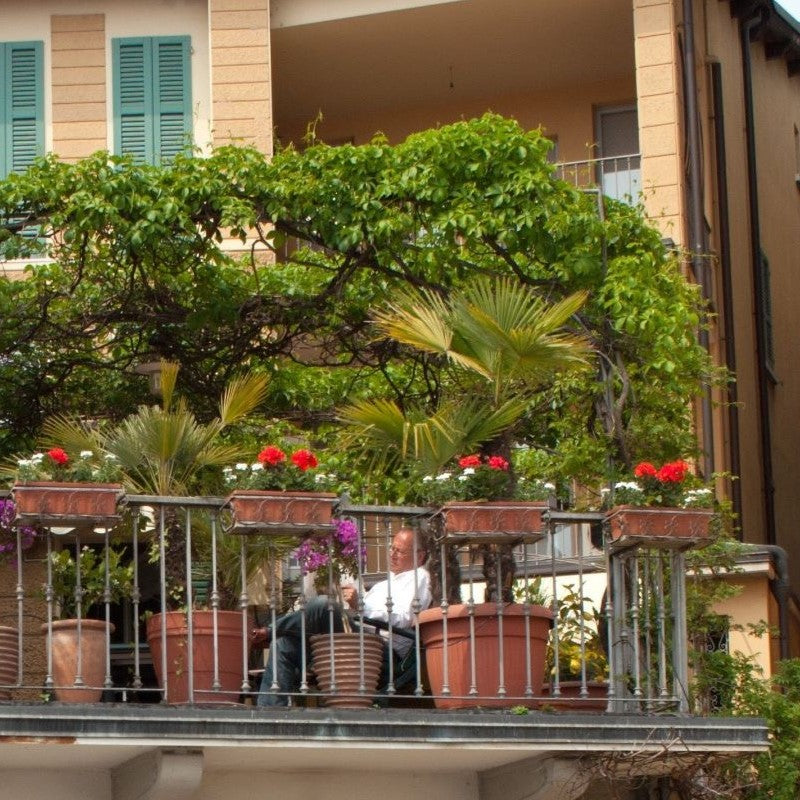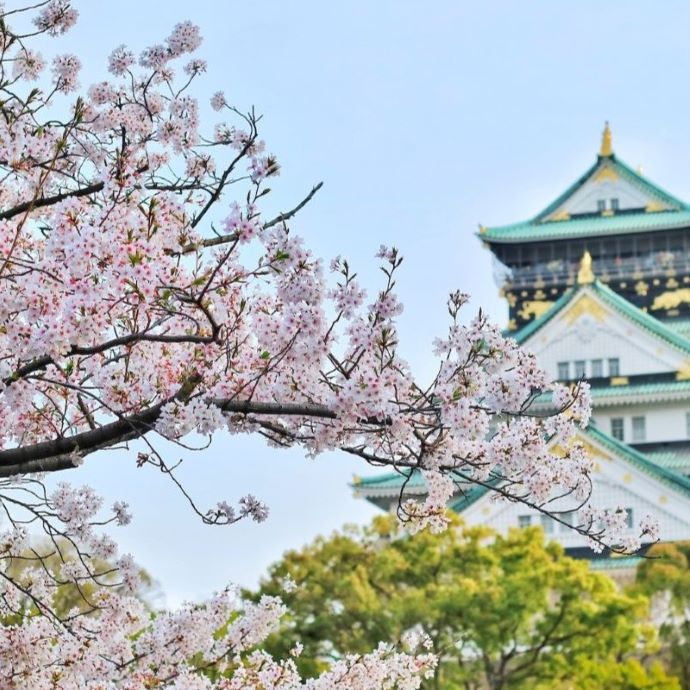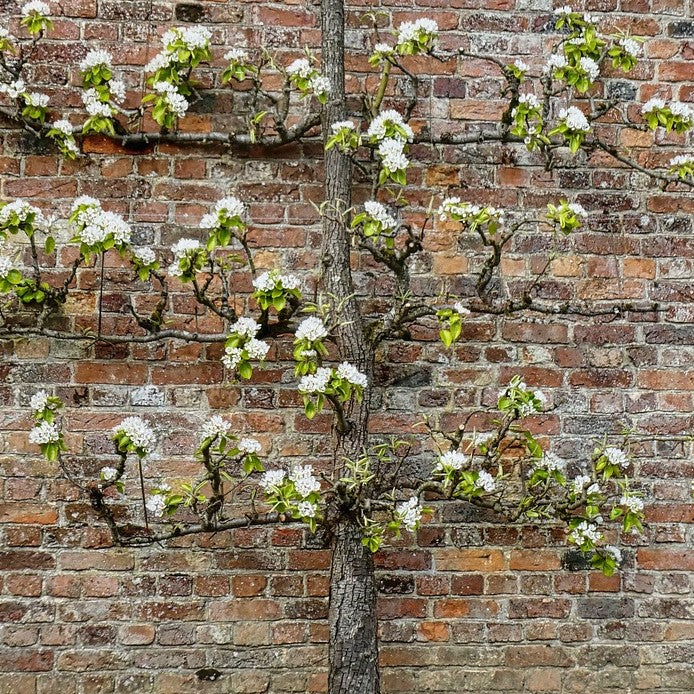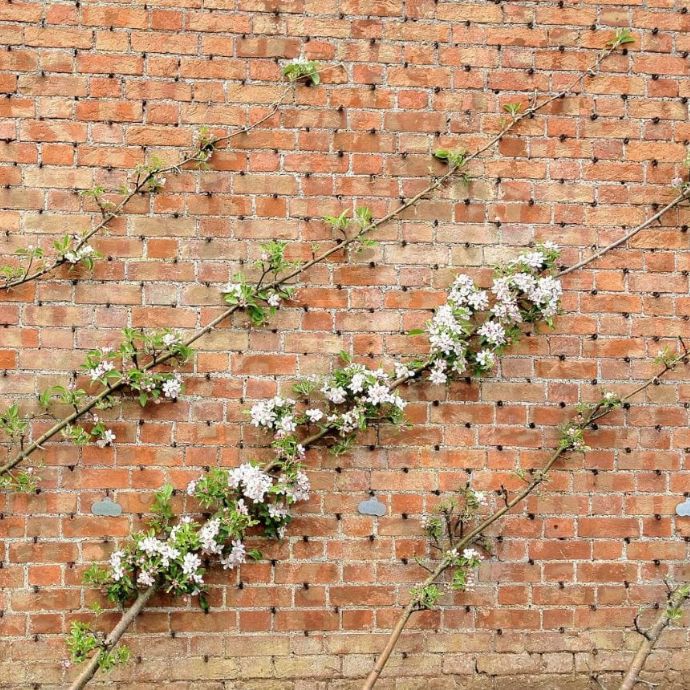Advice & Inspiration
Best Apple Varieties: Which Variety Should You Choose?
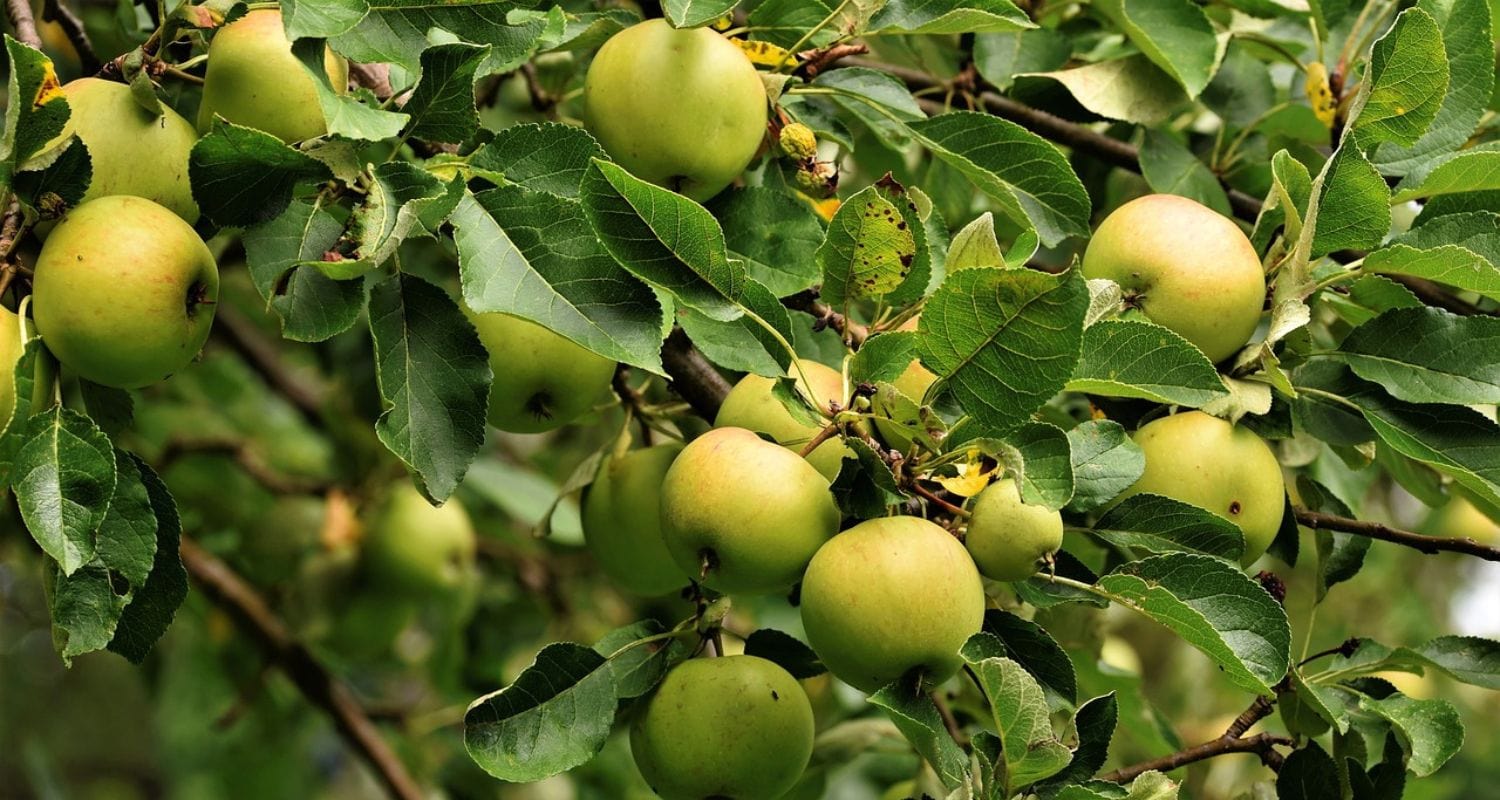
Maybe it’s because I’ve always had apple trees, but I feel like a garden isn’t complete without one (or two or three). If you feel the same way, you might be planning to plant your first apple tree or a tree to complement the apple trees you already have.
In either case, you’ll be eating those apples for a lot of years so it’s important to make the right choice. We asked our apple tree growers for their advice (after all, they should know) and here’s what they told us about the best apple varieties for every need, want and situation. First, though, let’s break down the various kinds of apple trees out there.
Jump to:
- The different types of apples
- Best apple tree for beginners
- Best cooking apple tree
- Best dessert (eating) apple tree
- Best dual-purpose apple tree
- Best apple for flavour
- Best heritage apple tree
- Best cider apple tree
- Best self-fertile apple tree
- Best disease-resistant apple tree
- Best apple tree for small spaces
- Orchardist top tips
What are the different types of apple?
Apples can be broken down into several different types including cooking, dessert (or eating), dual-purpose and cider apples.
Cooking apples are typically larger and too tart to be eaten raw, but become mellow when cooked while still holding their shape, making them perfect for sauces and baking. Dessert apples are normally best eaten fresh and can have a taste profile ranging from sweet to sharp, and from juicy to dry.
Dual-purpose apples, as their name would suggest, can both be used in recipes and eaten straight from the tree. Cider apples are generally too astringent for eating fresh, but make for an excellent alcoholic drink.
Best apple tree to grow for beginners
There are several great apple tree options for beginner growers out there, including ‘Red Windsor’, ‘Fortune’ and ‘Discovery’. These low-maintenance varieties will grow well in most soils, are compact, manageable and hardy, provide good yields and are easy to pick from. What’s not to like?

Best cooking apple tree
If you’re after a good cooker, then it’s hard to look past ‘Bramley’s Seedling’ and ‘Bountiful’. These apples hold their shape nicely when cooked, and the naturally sharp tartness softens beautifully when used in recipes like apple crumbles, pies and sauces.
These apples also tend to have a higher pectin content than eating apples, a natural thickening agent which not only helps make your apple puree nice and thick but can also help with digestion within the body.

Best dessert (eating) apple tree
Sometimes, you just want to pick an apple straight from the tree and crunch right into it, letting its juice run down your cheeks, savouring the moment. If this sounds like something you can get behind, and you feel yourself being magnetically drawn towards your trusty garden trug, then ‘Lord Lambourne’ is a good choice.
A classic English variety, holding the Royal Horticultural Society’s Award of Garden Merit and first bred over a century ago by the famous Laxton brothers, ‘Lord Lambourne’ yields fine-flavoured apples with creamy flesh, great juiciness and a wonderful aroma. My mouth is legitimately watering thinking about it.

Best dual-purpose apple tree
If you want an apple that can do it all, the sort of apple that all its friends are jealous of, then you need to pick a genuine dual-purpose apple. ‘Blenheim Orange’ is widely regarded as one of the finest dual-purpose varieties, yielding apples with a wonderful nutty flavour that puree down to a sauce brilliantly.
It grows well even in the country’s colder, northern climes, and can tolerate high levels of rainfall. Use the apples as cookers early on, or leave them to ripen for longer and they’ll develop a nice sweetness. Having been grown for over 250 years, this vigorous, award-winning variety is a fabulous choice for larger gardens.

Best apple for flavour
Flavour is always a bit subjective because while one person might have a super sweet tooth, another might prefer something tarter, or with a more rounded balance of particular flavours. That said, there are a few varieties widely-accepted to be among the most flavourful and tasty.
Complex and full-bodied
If it’s complexity you’re after, then there are a couple of varieties you need to know about. ‘Cox’s Orange Pippin’ and ‘Egremont Russet’ both exhibit rich, aromatic flavour profiles, the former displaying notes of melon and mango, the latter known for its nuttiness and subtle hints of vanilla.
Sweet apples
If you’re on the ‘sweeter is better’ train, then your first stop should be a variety like ‘Gala’, whose lovely level of sweetness lends itself well to both snacking and sauce-making. Plus, these apples have an excellent shelf life, storing all the way through to March. Check out our guide on storing apples for best practices.
Tart apples
For those who like their apples to have a bit of bite to them, you can’t go far wrong with a variety like ‘Granny Smith’, whose bright green apples are firmly on the tangy, more acidic side. You can even whack them in an apple pie or crumble.
Originally grown over 150 years ago in Australia, the variety was discovered when Maria ‘Granny’ Smith noticed a small seedling growing from some discarded crabapples!

Best heritage apple tree
Amidst all the hustle and bustle of modern-day life, sometimes it’s nice to pay homage to tradition. The term ‘heritage’ is typically applied to those apple tree cultivars that have been grown since before the turn of the 20th century.
If age is everything and you want to be able to produce a little factoid about your tree every time you have friends around, then you should pick a truly old variety. Of the varieties still widely available – some of the oldest varieties to have been grown in the UK, like Decio, are now endangered – then something like ‘Ashmead’s Kernel’ is ideal.
Grown since 1700 or so, this superb, award-winning variety produces fruit with a wonderful, pear-like flavour that also keeps well. Other heritage varieties worth knowing about include ‘Beauty of Bath’, ‘Worcester Pearmain’ and ‘Laxton’s Superb’.

Best cider apple tree
If you’re looking to create your own homebrew batch of cider, then it’s worth going for a variety like ‘Dabinett’ or ‘Kingston Black’, which produces apples with a higher concentration of tannin and sugar than other apple types. This aids the fermentation process as well as adding flavour to the finished cider.

Best self-fertile apple tree
If you’ve only got room for one apple tree and you want to be absolutely sure you get a crop of fruit, then we’d recommend you opt for a self-fertile variety. If you live in an urban, built-up area, then the chances are there’ll be a viable apple tree near enough that pollination for your own tree won’t be an issue.
If you live in a particularly remote area, however, or you just want to be doubly sure you get your delicious crop of apples, then self-fertile varieties offer a solution, as they don’t require a pollination partner in order to bear fruit. Some of the best self-fertile varieties include ‘Egremont Russet’, ‘Scrumptious’, ‘Spartan’, ‘Sunset’ and ‘James Grieve’.
Duo and family apple trees
You can also consider purchasing a duo or family apple tree. These trees consist of two (duo) or three (family) different varieties grafted onto a single stem. This is a great option for smaller gardens and also helps get around the problem of pollinating partners, as the different varieties will be able to pollinate one another to ensure the setting of fruit.
For more information on apple pollination groups and how they work, check out our comprehensive guide.

Best disease-resistant apple trees
Although apple trees are generally robust and healthy, they can still be prone to certain problems from time to time, including apple scab, apple canker and brown rot. ‘Grenadier’ (cooking) and ‘Pixie’ (dessert) are both varieties boasting particularly good disease resistance.

Best apple tree for small spaces
If you’re limited on space, then a patio apple tree, a cordon apple tree or a tree grafted onto a dwarfing rootstock are your three best options. Patio and cordon trees are grown and trained in such a way that, when properly pruned each year, they provide scrummy apples from just a small space.
Patio and cordon trees
Patio apple trees grow to just a metre or a metre-and-a-half in height, and can grow well in pots on a sunny balcony or patio. Cordon apple trees (also called columnar apple trees) consist of a single central stem (leader) from which short fruit-bearing spurs branch off horizontally.
Dwarfing rootstocks
Dwarfing rootstocks (like M9, M26 and M27, for example) restrict a tree’s overall height, which is ideal for more compact gardens. Whichever you choose, your takeaway from this should be that no space is too small to feature an apple tree.

An orchardist’s top tips
Last year, we visited Brogdale Collections (home of the national fruit collection) and talked to Neil Franklin, one of their orchardists. Here’s what he had to say when it comes to choosing an apple tree for your garden.
Final thoughts
So, there you have it! Your full guide to the best apple trees to grow in the UK. Phew, I’m wiped out… I’m going to pour a glass of freshly-pressed juice, treat myself to a homemade turnover and scroll TikTok on my fruit-branded tablet. Other, non-fruit brands are, of course, available.
